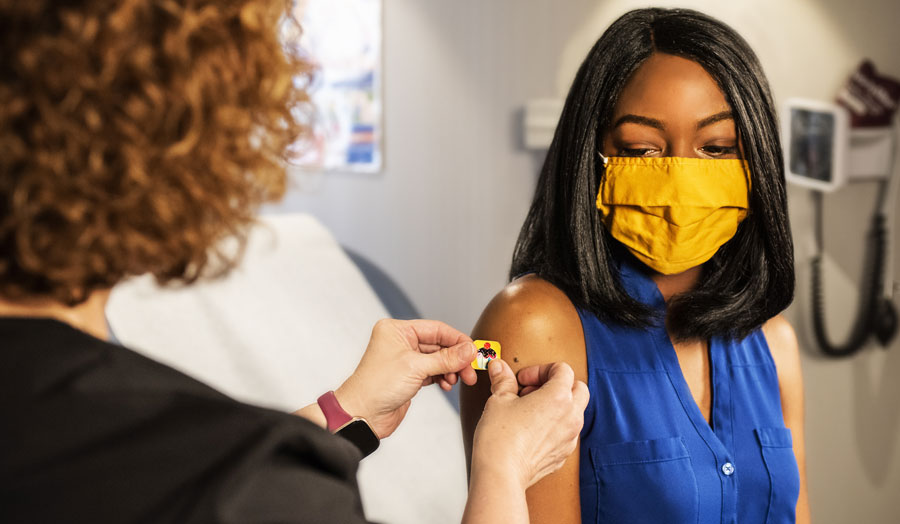The NHS and London Metropolitan University are launching a joint research project to understand why Londoners are the least likely to take a Covid vaccine.
Date: 22 April 2021
London Met are partnering with the NHS to study Londoners’ barriers and attitudes towards receiving a COVID-19 vaccine after NHS England data has revealed that Londoners are the least likely in England to receive a Covid vaccine.
All of the 10 constituencies with the lowest estimated proportion of vaccinated people aged 60 are in London, including two constituencies with vaccination rates of under 60%. Of the 30 constituencies with the lowest rate of COVID vaccine uptake in over 60s, 27 are in London. London Met and the NHS have launched the joint research project to understand why this is, with the organisations encouraging all Londoners over 18 to take part. The findings will help to inform NHS strategies to support Londoners in receiving a vaccine.
The survey takes between 5 and 10 minutes to complete, is anonymous and confidential, and is open to anyone who lives in London and is over 18 years of age. Everyone who completes the survey for this research will be entered into a prize draw to win one of four £100 Aldi vouchers. Participants may be also invited to take part in voluntary phone interviews after completing the survey. The survey is open now and is expected to run until mid-May.
This research is being conducted by academics at London Met and is being led by Dr Stephen Hills, Director of the Health Economics Research Group in the Guildhall School of Business and Law, alongside Dr Una Fairbrother from the School of Human Sciences, Professor Chris Chandler, Dr Anna Baker and Dr Lutfiye Salih from the School of Social Sciences. The research forms part of London Met’s civic commitment to London through the London Met Lab, a project which focuses the university’s academic expertise to co-design solutions to the social challenges which disproportionately affect local communities.
Professor Christos Kalantaridis, Dean of the Guildhall School of Business and Law at London Met said, "By taking part in this research, participants will be playing an important role in helping us understand why Londoners are the least likely group to receive the COVID vaccination, and in supporting the NHS in encouraging vaccine take-up. I encourage all those who are eligible to take the survey and help shine a light on barriers which may be impacting vaccination take-up in London."
Sophie Cloutterbuck, Director of London Engagement at London Met said, "This research reflects our commitment to our local area, and the objectives of our London Met Labs - to conduct research which helps to support our community in overcoming some of the key societal challenges impacting our communities in London. Throughout COVID we have been working hard to help support London in the fightback against the virus, and we are so proud to be supporting the NHS in helping to keep Londoners safe through this partnership."
Dr Josephine Sauvage, Chair of the North Central London Clinical Commissioning Group (CCG), said, "Vaccination against COVID-19 offers the greatest possible protection to people in our communities against a virus that has led to such terrible loss, and so many changes to our lives. We’re working with London Metropolitan University to understand what people think about vaccination, and how we in the NHS can work to improve people’s health. Every response to this survey gives us a fuller picture of what our communities think about this huge challenge, and I’d urge as many people as possible to get involved."

Click this link to take the survey
The survey takes between 5 and 10 minutes to complete, is anonymous and confidential, and is open to anyone who lives in London and is over 18 years of age.
Everyone who completes the questionnaire and provides an email address will be entered into a prize draw with the chance of winning one of four £100 Aldi vouchers.
